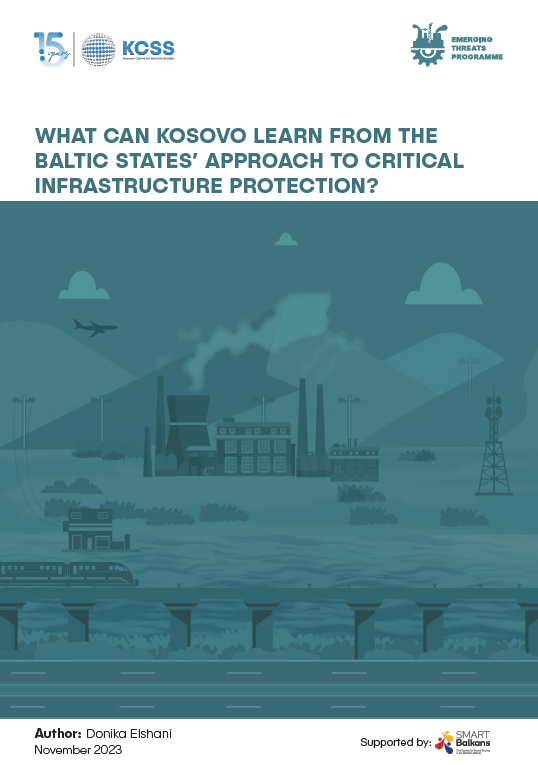24/11/2023

Critical infrastructure, encompassing vital systems and assets crucial for societal functioning, faces a diverse range of threats, from climate change-induced natural disasters to human-made errors and disasters. The Western Balkans, including Kosovo, are not immune to these challenges. In the context of Kosovo, ethno-political tensions, severe floods, and cyberattacks are just a few examples of the threats that pose significant risks to its critical infrastructure. In April 2019, Kosovo adopted the Law on Critical Infrastructure, becoming the first country in the region to do so in line with the EU directives. Nevertheless, the implementation of the law has been lacking, leaving much room for improvement and further action.
The purpose of this policy brief is to support the efforts of public institutions, with a particular focus on the Ministry of Internal Affairs (hereafter MIA), in designing and implementing an effective and comprehensive critical infrastructure system in Kosovo. The brief aims to provide an overview of best practice examples from the Baltic states, which have come to be recognized as leaders in the fields of cyber security and critical infrastructure resilience. The Baltic states, which include Estonia, Latvia, and Lithuania, provide a good basis of comparison for Kosovo in this field, not least because of their similar historical challenges, geographical proximity, and similar demographic profile. Unlike the Baltic states, Kosovo is at the initial stages of establishing its critical infrastructure protection framework. Although the sector is far from being fully operational, this stage offers a valuable opportunity for the involved institutional actors in Kosovo to learn from countries like the Baltic states.
Kosovo can learn several important lessons from the experiences of Estonia, Latvia, and Lithuania in critical infrastructure protection by implementing these lessons and considering the specific challenges and needs of its own infrastructure and security landscape